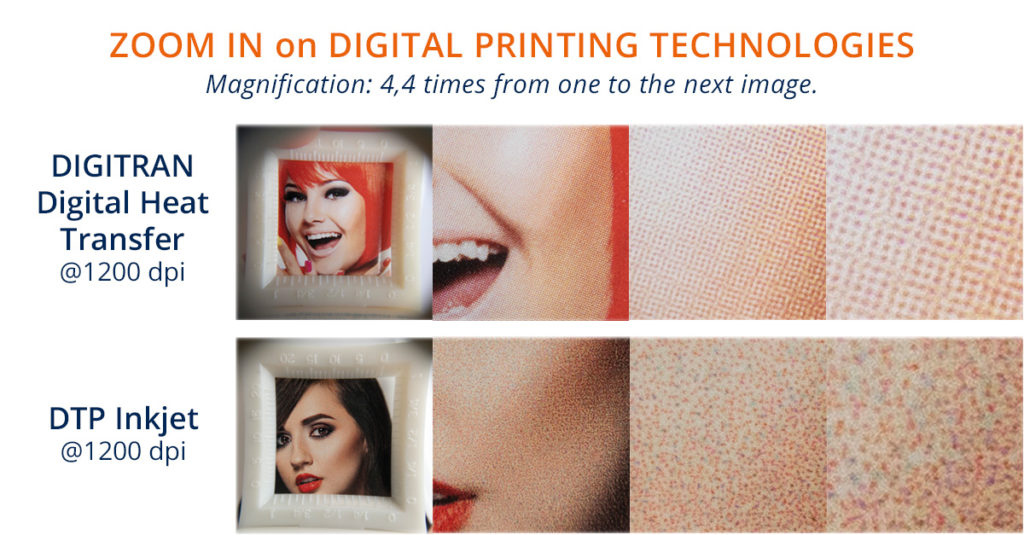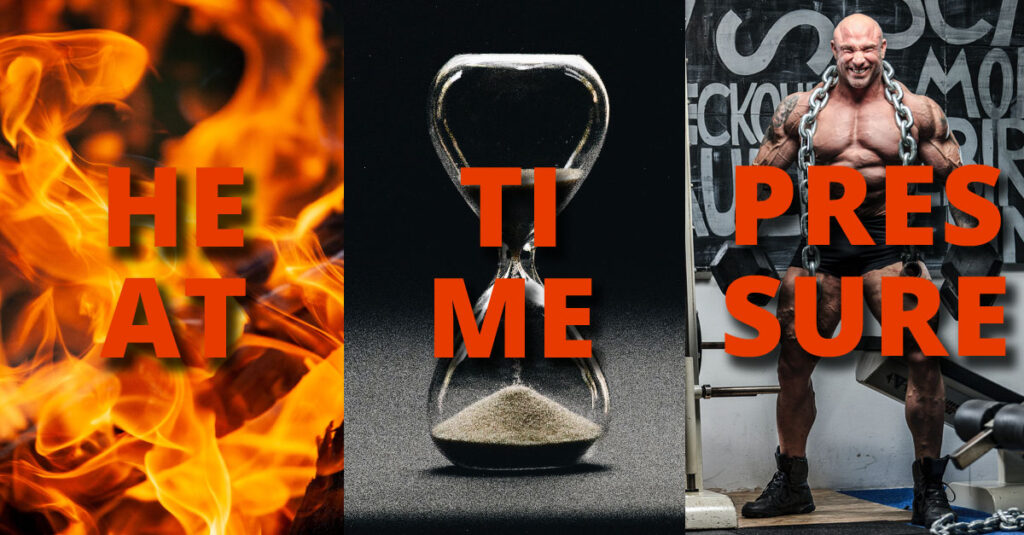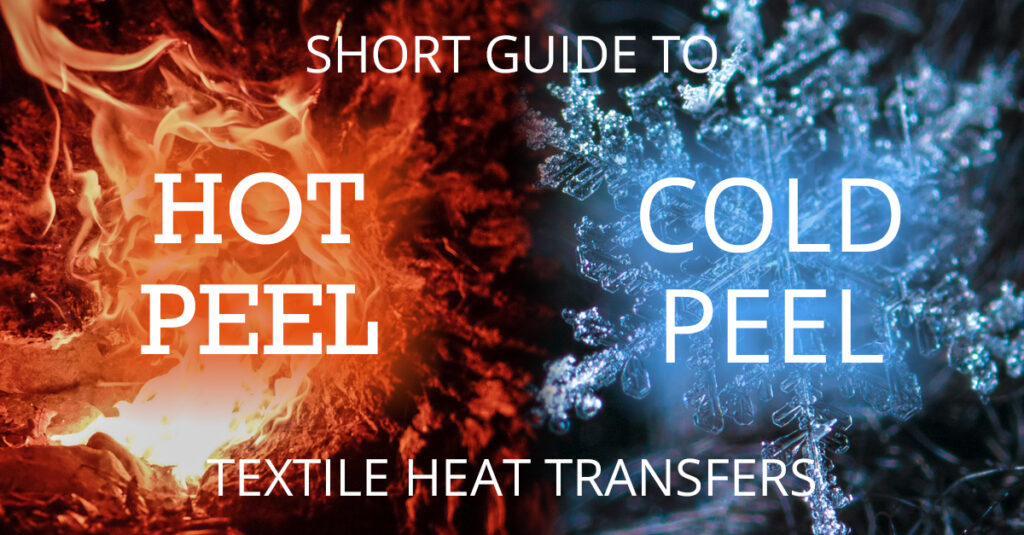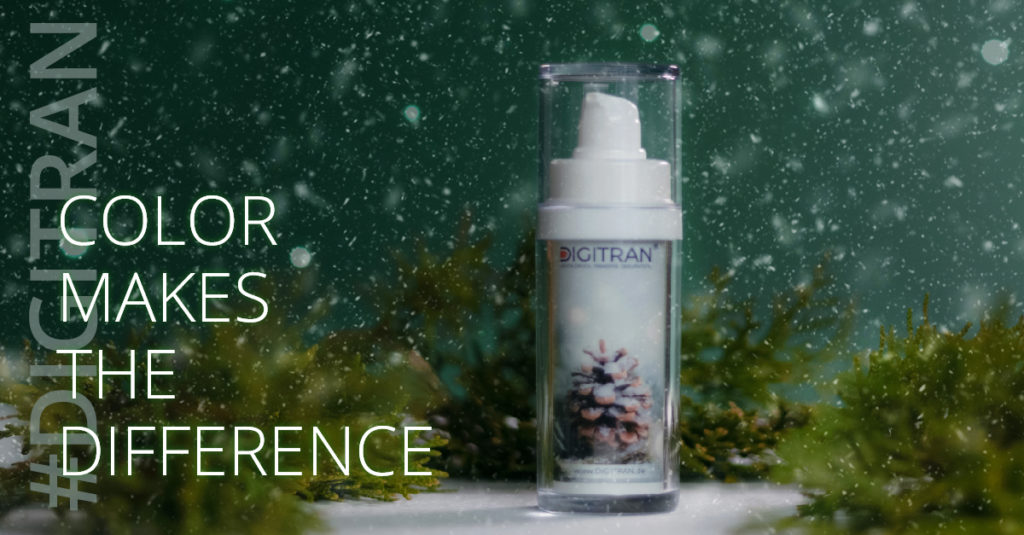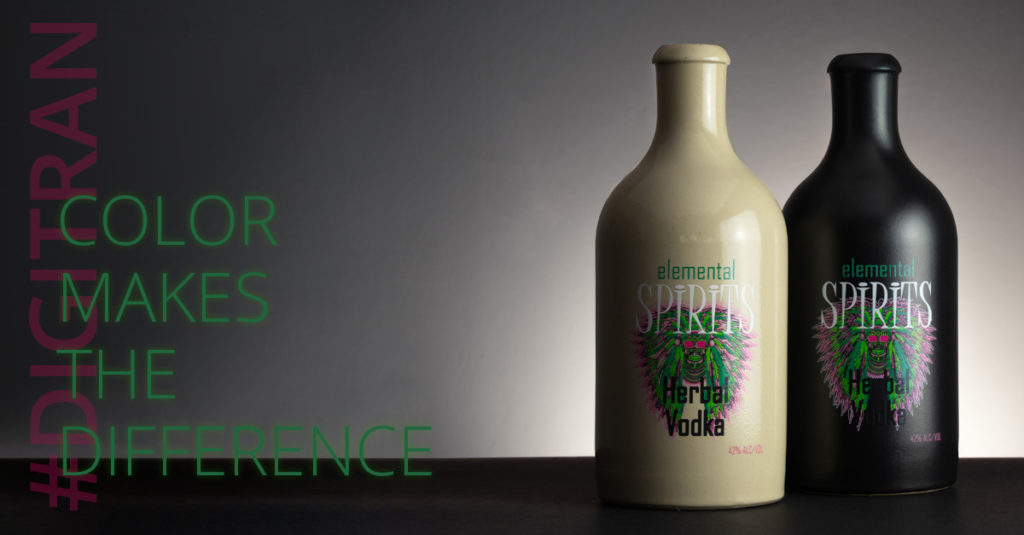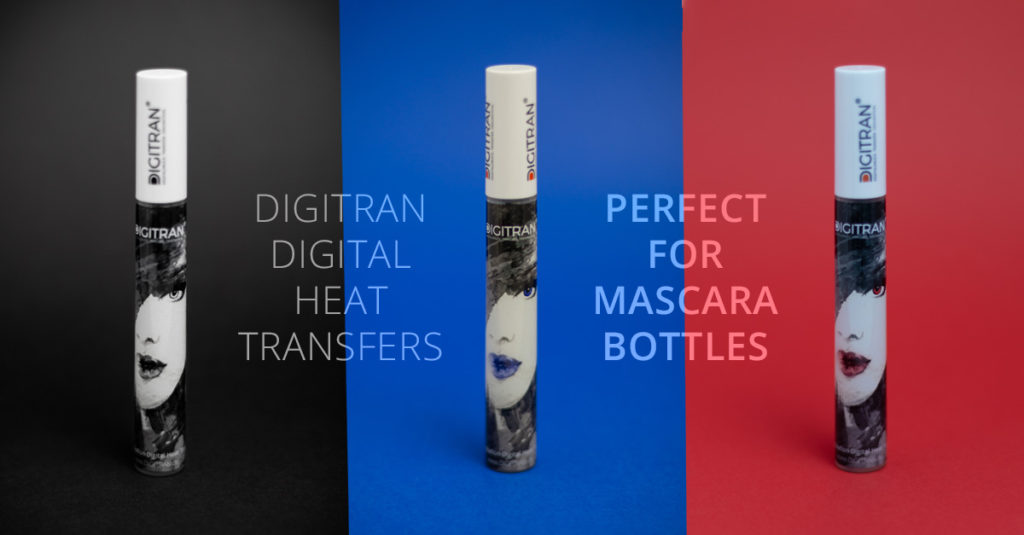Do you think that 1200dpi and 1200dpi are the same thing in digital printing? Probably yes.
But no, not even close!
Especially when it comes to printing photorealistic designs and skin tones, the best possible print quality should be sought. The only confusing thing is that both images have a print resolution of 1200 dpi, yet they are anything but identical. But where does this difference come from?
Digital Heat Transfers for Printing Shaped Products
DIGITRAN digital heat transfers for printing onto shaped products are printed under highly controlled conditions. For this reason, high-resolution heat transfer images can be printed with accurate positioning of the color dots. The toner-based printing process uses a combination of special transfer foils, high-resolution toner printing and adhesion promoters for various products and materials.
Immediately after the actual printing process, these printed images are wound up into compact rolls and sent for application. The last remaining step is the application of the finished printed image to the product.
Digital Inkjet Direct Printing
Printing with DTP (Direct to Product) inkjet technology is somewhat more difficult, as it involves the application of tiny drops of ink directly onto the product. These drops, up to 2 picoliters in size, have to fly through the air after leaving the print head, land on a moving surface, overcome electrostatic influences and not interact with the other drops. These complex requirements make it more difficult to control the color dots as precisely as with a toner transfer.
Conclusion
Even though both prints have 1200 "dots per inch", this number says nothing more than the number of printed colored dots. And not where these dots are afterwards.
Click this button to get in touch with us for a personal consultation. To make sure that your products can benefit from this unique, clean and digital printing technology as soon as possible.
Further Posts
Besides many other factors that can influence the heat transfer process, the three most important ones are heat, time, and pressure. No matter if it is a textile transfer or a transfer for packaging applications, you should know about the effect of these parameters and how a transfer is affected by them.
Textile heat transfers come in three technologies when it comes to peeling. This can be “hot peel”, “cold peel” or “hot split”. But what is the difference between them?
Airless dispensers are up and coming, just like our digital printing solutions for them.
For mandrel carried products such as airless dispensers, shells, or cosmetic tubes, #DIGITRAN offers a range of digital heat transfer printing solutions. Read on to know which these are:
Ceramic bottles are perfect to give your spirits a unique look.
Not only do they look different than all those glass bottles, but they will also protect your drink from sunlight!
Furthermore, you don’t need a primer, curing, or drying. Once the image is applied the bottle you can be fill or pack and ship it right away.
As heat transfer technology in general is well established for printing mascara bottles, the digital version by DIGITRAN makes it even better!
Here are 7 reasons why:

